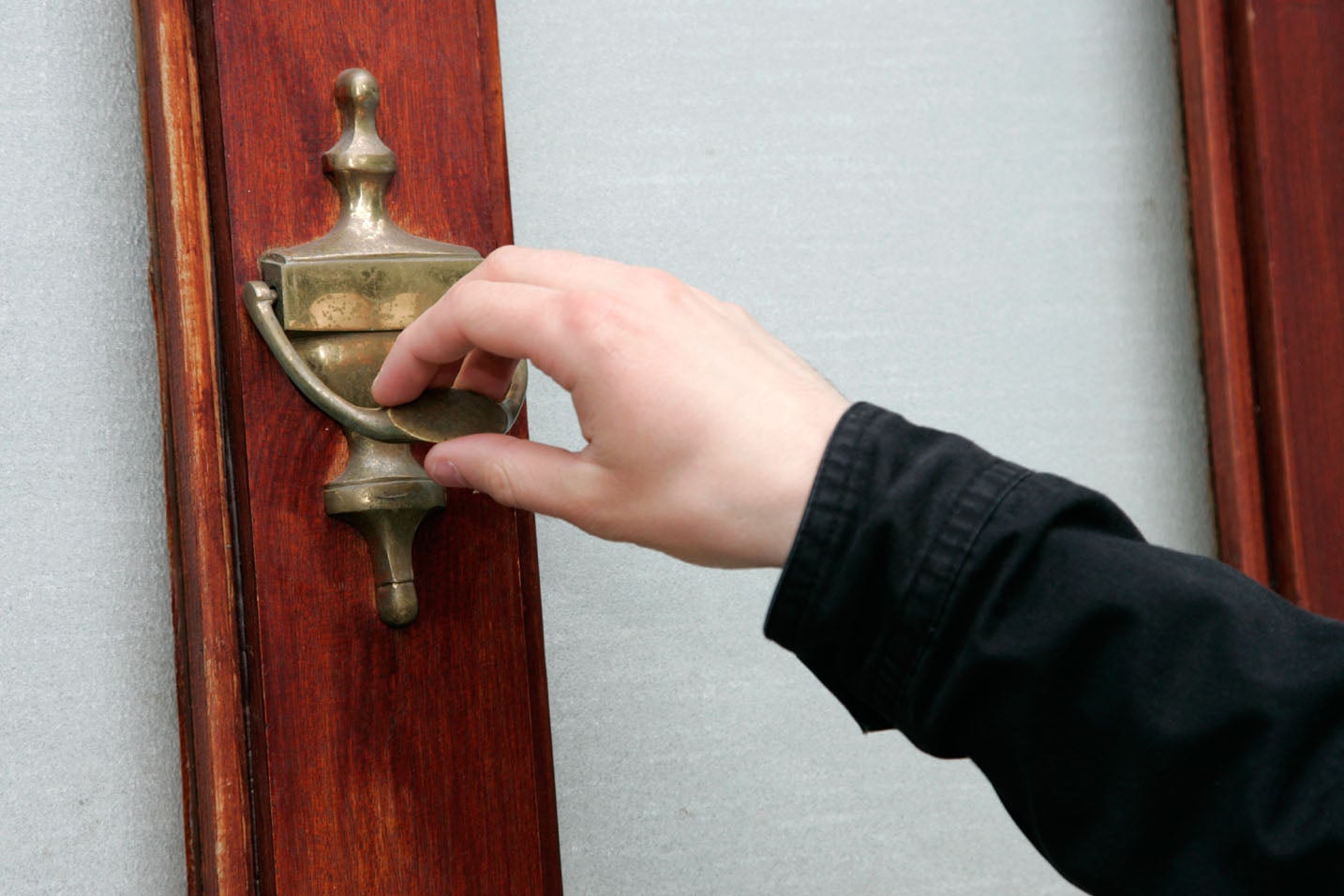New free-for-all for door-to-door selling
Relaxation of law raises fears that vulnerable people will be targeted

Your support helps us to tell the story
From reproductive rights to climate change to Big Tech, The Independent is on the ground when the story is developing. Whether it's investigating the financials of Elon Musk's pro-Trump PAC or producing our latest documentary, 'The A Word', which shines a light on the American women fighting for reproductive rights, we know how important it is to parse out the facts from the messaging.
At such a critical moment in US history, we need reporters on the ground. Your donation allows us to keep sending journalists to speak to both sides of the story.
The Independent is trusted by Americans across the entire political spectrum. And unlike many other quality news outlets, we choose not to lock Americans out of our reporting and analysis with paywalls. We believe quality journalism should be available to everyone, paid for by those who can afford it.
Your support makes all the difference.Unscrupulous door-to-door salesmen will target vulnerable people and the country’s busiest shopping areas will degenerate into “free-for-alls” for street traders, ministers were warned tonight, after they moved to scrap controls on pedlars.
The Government provoked anger when it announced it would ease restrictions on travelling vendors, traders setting up “pop-up stalls” and even the dwindling number of rag-and-bone men touting for scrap metal.
Ministers claimed the reforms would make it easier for budding “young entrepreneurs” to trade in communities and on doorsteps without being stifled by bureaucracy from the Victorian age.
But town hall chiefs warned the moves could backfire by taking business away from legitimate shops and market stalls and predicted it would lead to an increase in “cold-callers” knocking on front doors. The Department for Business is to sweep away a 141-year-old law, the Pedlars Act, under which street traders and door-to-door salespeople – currently numbering around 4,000 in the UK – are required to register with the police. Once they have proved they are of “good character”, they are given a licence to trade for a year, costing £12.50.
Ministers view the legislation as an outdated piece of red tape that is an unnecessary burden on people trying to make a living. The Government is also obliged to act under a European directive designed to guarantee freedom of movement and trade within the EU.
Separately, the department is also making it harder for town halls to turn down applications for market stalls – and allowing them to grant longer licences to stall owners.
But the Local Government Association (LGA), which represents councils, condemned the plans as “unnecessary and counterproductive”.
The chairman of the LGA’s safer and stronger communities board, Mehboob Khan, said: “This could potentially turn the nation’s high streets into a free-for-all for street traders.”
He added: “Scrapping the Pedlars Act risks jeopardising the progress councils have made in tackling the rising tide of bogus cold-callers who prey on the elderly and vulnerable.
“Far from boosting growth and free enterprise, allowing a street trade free-for-all is likely to drive customers away from the high street and create an unlevel playing field where legitimately run shops and market stalls find themselves struggling to compete.”
Age UK, which has just launched an awareness campaign about doorstep fraudsters, said last night that older people were on average tricked out of £1,300 compared with £700 lost by younger victims.
Michelle Mitchell, its charity director-general, said: “Although fewer older people become victims of crime than other age groups, people in later life can be an attractive target for scammers.”
The Government is to hold a three-month consultation on the plans with the aim of putting them into effect next spring.
Jo Swinson, the Consumer Affairs minister, said: “Some of the best places to shop are our vibrant street stalls, which are an important part of traditional British culture. The changes we are proposing will help to eliminate barriers to street traders and pedlars by making it easier to trade, boosting retail and helping small traders – including many young entrepreneurs – to expand.”
She described the Pedlars Act as archaic and “unhelpful and restrictive bureaucracy”.
But Ian Murray, the shadow Consumer Affairs minister, said trading rules were in place for a reason. He added: “The Government is so determined to cut regulation that it could be cutting it in a haphazard way that puts consumers in danger. It could also jeopardise legitimate business and street traders.”
A spokeswoman for the Department for Business said families were already protected from dishonest doorstep traders by trading standards regulations as well as the criminal law.
Its consultation document on the proposal says: “Some local authorities favour some means of limiting pedlar numbers. However, most of these would not in our view be justifiable under the directive.”
Join our commenting forum
Join thought-provoking conversations, follow other Independent readers and see their replies
Comments